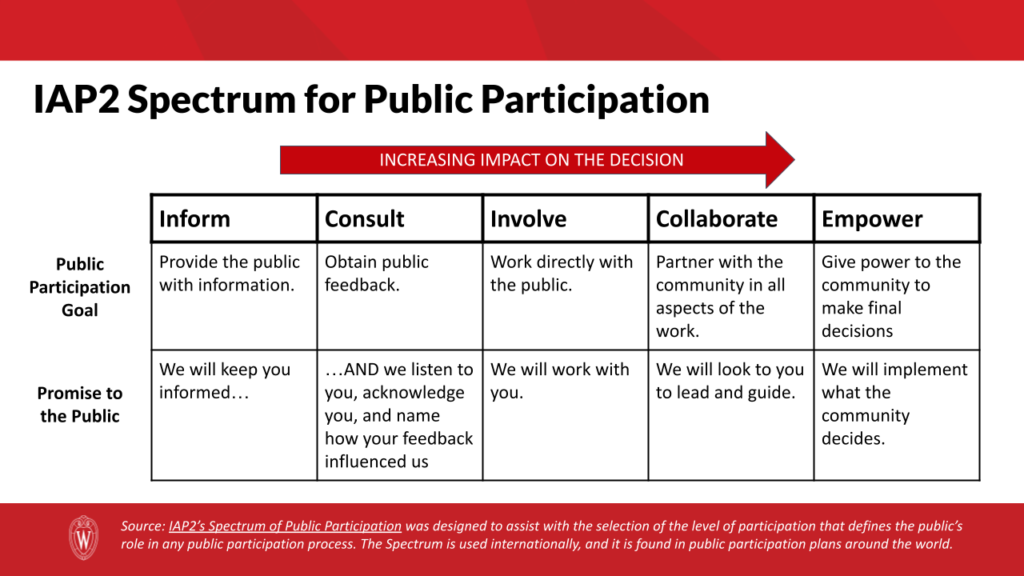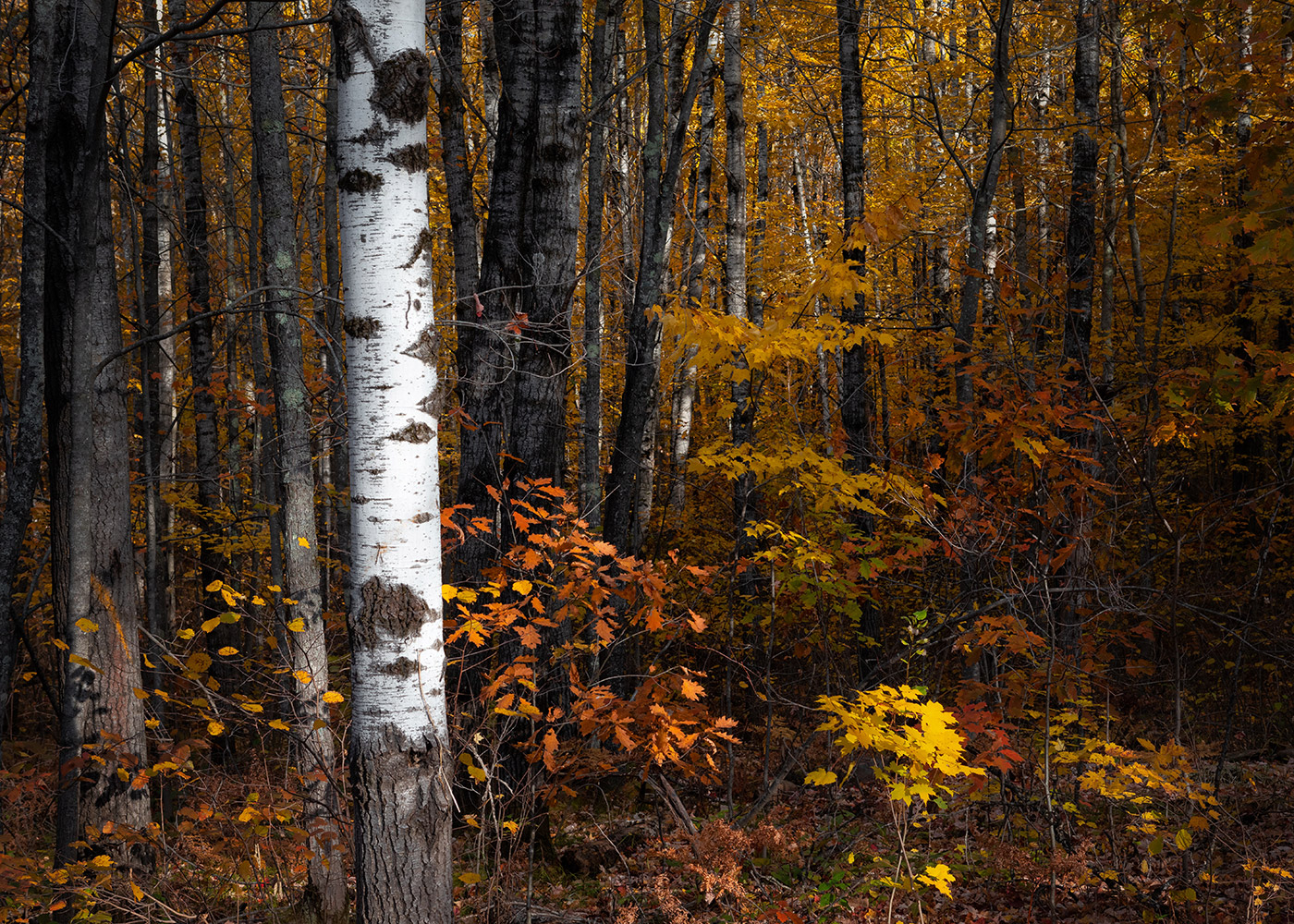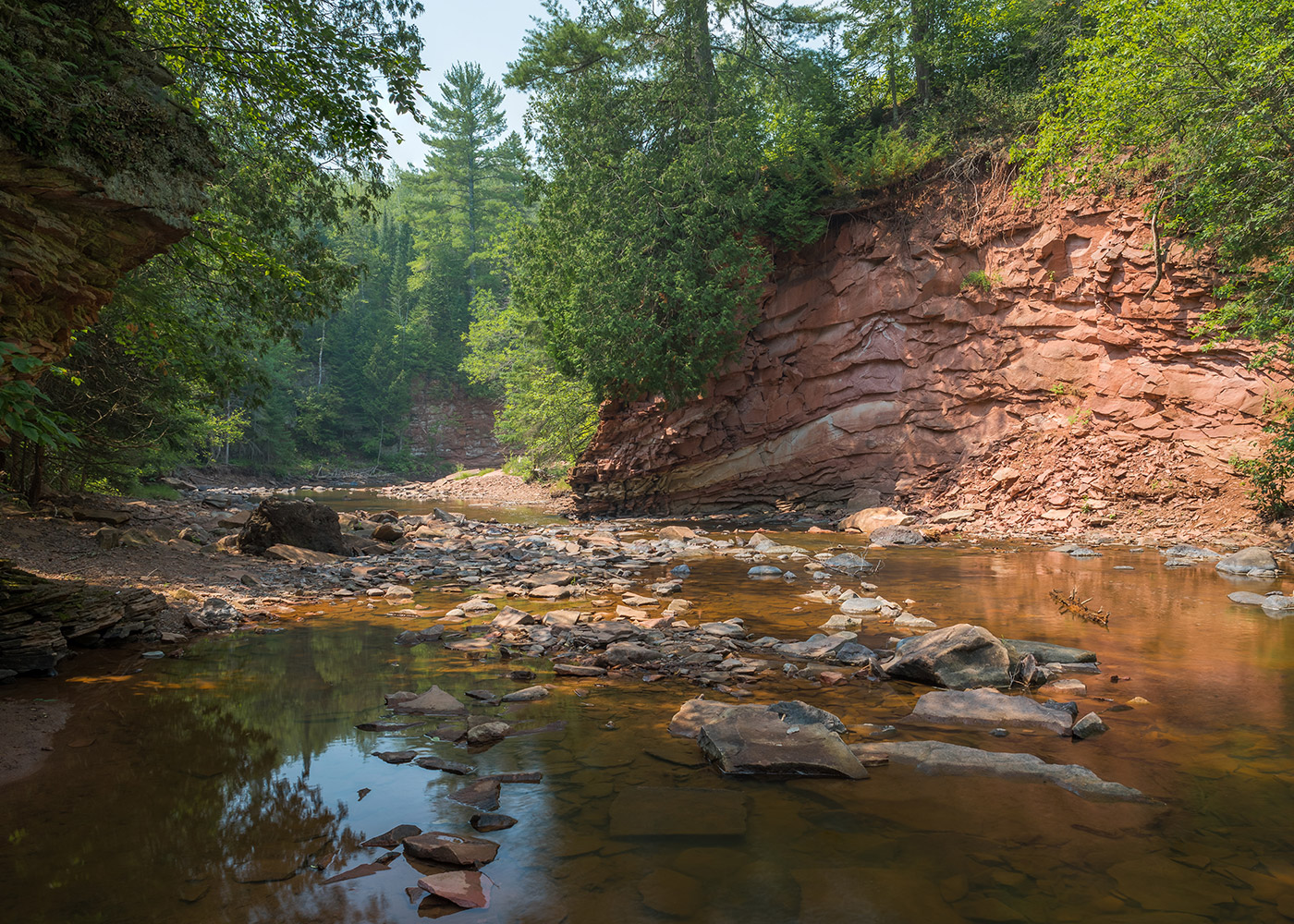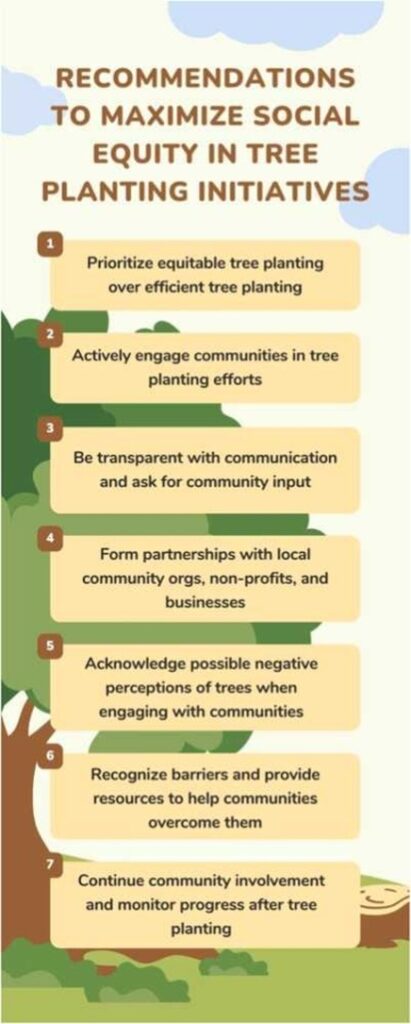The following resources are designed to support community engagement for urban forestry projects. The resources were shared as part of a May 15, 2024 webinar hosted by the WI DNR, and delivered by the UW-Madison Division of Extension’s Organizational and Leadership Development Program.




Key Ideas and Concepts
Community Engagement for Urban Forestry Projects – May 15, 2024 Webinar Slides
Centering Community in Program Outreach and Engagement
As we plan our outreach and engagement efforts, we must be intentional with centering the community members we hope to reach. We must create authentic, sustainable relationships with community members to implement our programming successfully. This document summarizes key concepts to direct your efforts.
Community Engagement Strategies for Urban Forestry Projects
This document is designed to help you identify equitable outreach and collaboration strategies you can use in your urban forestry projects.
Asset Based Community Development
Asset Based Community Development (ABCD) is a strategy for sustainable community development that focuses on building on existing community assets. This document provides an overview of ABCD.
Participatory Asset Mapping
This resource describes participatory asset mapping, why and when to use it, and how to do it.
Community Engagement Tools
Community Engagement Guide for Sustainable Communities
This guide is designed to help communities catalyze new networks, find problem-solving methods, and create inclusive decision-making tables to craft an authentic vision for an equitable and prosperous future.
Engagement for Community Change
This article discusses the why, who, what, and how of effective community engagement.
EPA Public Participation Guide
This guide is designed to help those who manage public participation incorporate fair treatment, meaningful involvement, and social inclusion of all people regardless of race, color, national origin, sexual orientation, or income.
Forums and Asset Mapping
This article provides information on when to use community forums and asset mapping. It was originally developed for broadband planning but can be easily adapted to urban forestry engagement.
Stakeholder Mapping Tools
These are free online resources that allow you to map the key stakeholders related to an effort on a matrix.
IAEA Stakeholder Analysis
This resource describes two tools for stakeholder analysis – stakeholder matrices and stakeholder maps.
Questionnaire Design: Asking Questions with a Purpose
This resource includes guidance on determining what kind of information to collect, how to word questions, and how to format the questionnaire.
Survey and Conversations
This article provides information on when and how to use surveys. It also describes types of exploratory conversations to support engagement. It was originally developed for broadband planning but can be easily adapted to urban forestry engagement.
Urban Foresty Engagement

Advancing social equity in urban tree planting: Lessons learned from an integrative review of the literature
- Social equity concerns affect the success of urban tree-planting programs.
- Reviews of existing studies reveal evidence-based recommendations for equitable greening.
- Prominent challenges include ongoing tree care/maintenance and negative perceptions of trees.
- Successful strategies typically involve engagement and partnerships with communities.
- Important to prioritize equity over efficiency for long term tree-planting success.
Citation: Myers, G., Mullenbach, L. E., Jolley, J. A., Cutts, B. B., & Larson, L. R. (2023). Advancing social equity in urban tree planting: Lessons learned from an integrative review of the literature. Urban Forestry & Urban Greening, 89, 128116. https://doi.org/10.1016/j.ufug.2023.128116
Engaging environmental justice communities in community forest management
This links to a November 2023 presentation by Minnesota-DNR’s Community Environmental Justice Coordinator, Molly Codding. The presentation focuses on engaging historically disenfranchised communities in planning, implementation, and evaluation of urban and community forest management activities.
Vibrant Cities Lab – Equity
This website provides ideas and resources aimed at addressing the fact that low-income and communities of color benefit least from green infrastructure and healthy urban forest initiatives.
Community Examples
Holyoke Massachusetts – Urban Foresty Equity Plan
In 2021, the City of Holyoke worked with Davey Resource Group, Community Circle, and Fair Forests Consulting to create a comprehensive strategy for protecting and expanding the city’s trees. The process included a public tree inventory and a series of public forums.
The following community examples were originally mentioned in the presentation, How to equitably reach out to and collaborate with diverse groups, an interactive training for Tree City USAs given on April 30, 2024 by Christine Carmichael, Founder and Principal of Fair Forests Consulting, and Alana Tucker of Tree City USA.
Ann Arbor, Michigan – 10,000 Trees Initiative
Urban trees provide many environmental, economic, social, and health benefits. Ann Arbor’s 10,000 Trees Initiative set the goal of seeing 10,000 new trees planted on private property by 2030.
Bridgeport, Nebraska – Tree Board
The City of Bridgeport received funding from the Arbor Day Foundation to receive 75 free trees to improve public benefit to its community members. Twenty-five trees are designated for public spaces and the remaining 50 trees will be distributed to residents within city limits.
Fort Worth, Texas – Free Trees
The Neighborhood Tree Planting Program helps to reduce summer temperatures and stormwater runoff, improve air quality, beautify neighborhoods, and increase property values by providing free 5-gallon trees when neighborhood groups plant and water the trees until established.
Providence, Rhode Island – Climate Justice Plan
Providence’s Climate Justice Plan, co-developed by the City of Providence’s Department of Sustainability and the Racial and Environmental Justice Committee of Providence, includes seven key objectives, 20+ targets, and over 50 strategies aiming to create a truly equitable, low-carbon, climate-resilient city.
San Fernando, California – Let’s Talk Trees Workshop
The City of San Fernando developed workshops that included an educational presentation on nine benefits of the urban forest, and a survey of community members.
Community Engagement and Survey Support
Applied Population Laboratory (APL)
The APL provides information solutions through a unique set of skills that unites applied demography, health geography, spatial analysis, information systems, planning, and community development.
Survey Research Center UW-River Falls
The Survey Research Center conducts cost-efficient and high-quality surveys for community-focused clients.
UW-Madison Division of Extension, Community Development Institute
Extension’s Community Development Educators can help with the design and facilitation of community engagement processes. Search for an educator near you in the Extension Directory.
Communication Resources
ADA – Communicating Effectively with People with Disabilities
This webpage provides information about communication aids and services.
CDC – Communicating With and About People with Disabilities
People-first language is used to communicate appropriately and respectfully with and about an individual with a disability. Learn more by reading this resource from the CDC.
Plain Language Guidelines
These guidelines help you write clearly so readers can find what they need, understand what they find, and use what they find to meet their needs.





